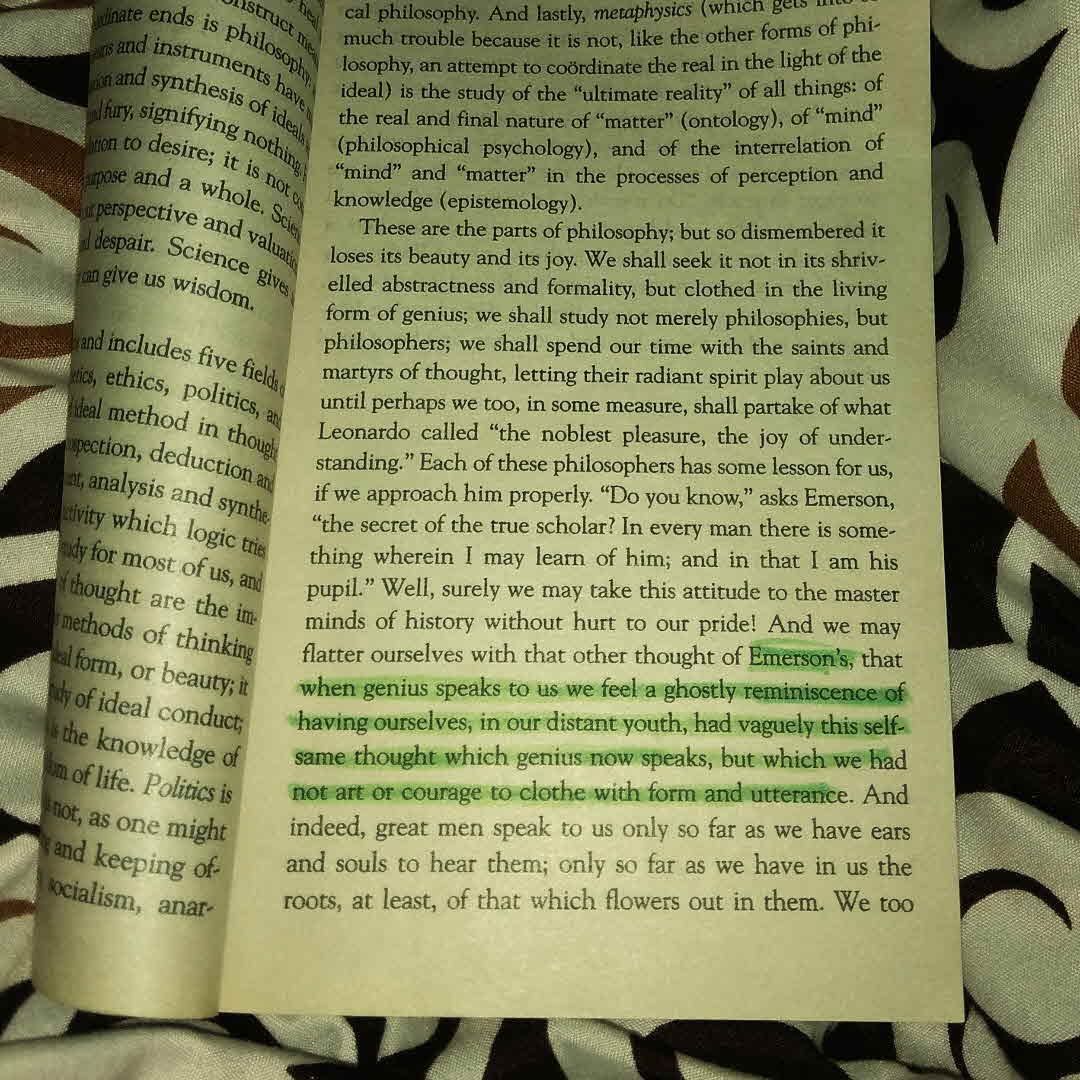
When genius speaks to us we feel a ghostly reminiscence of having ourselves, in our distant youth, had vaguely this self-same thought which genius now speaks, but we had not art or courage to clothe with form and utterance.
-Emerson

When genius speaks to us we feel a ghostly reminiscence of having ourselves, in our distant youth, had vaguely this self-same thought which genius now speaks, but we had not art or courage to clothe with form and utterance.
-Emerson
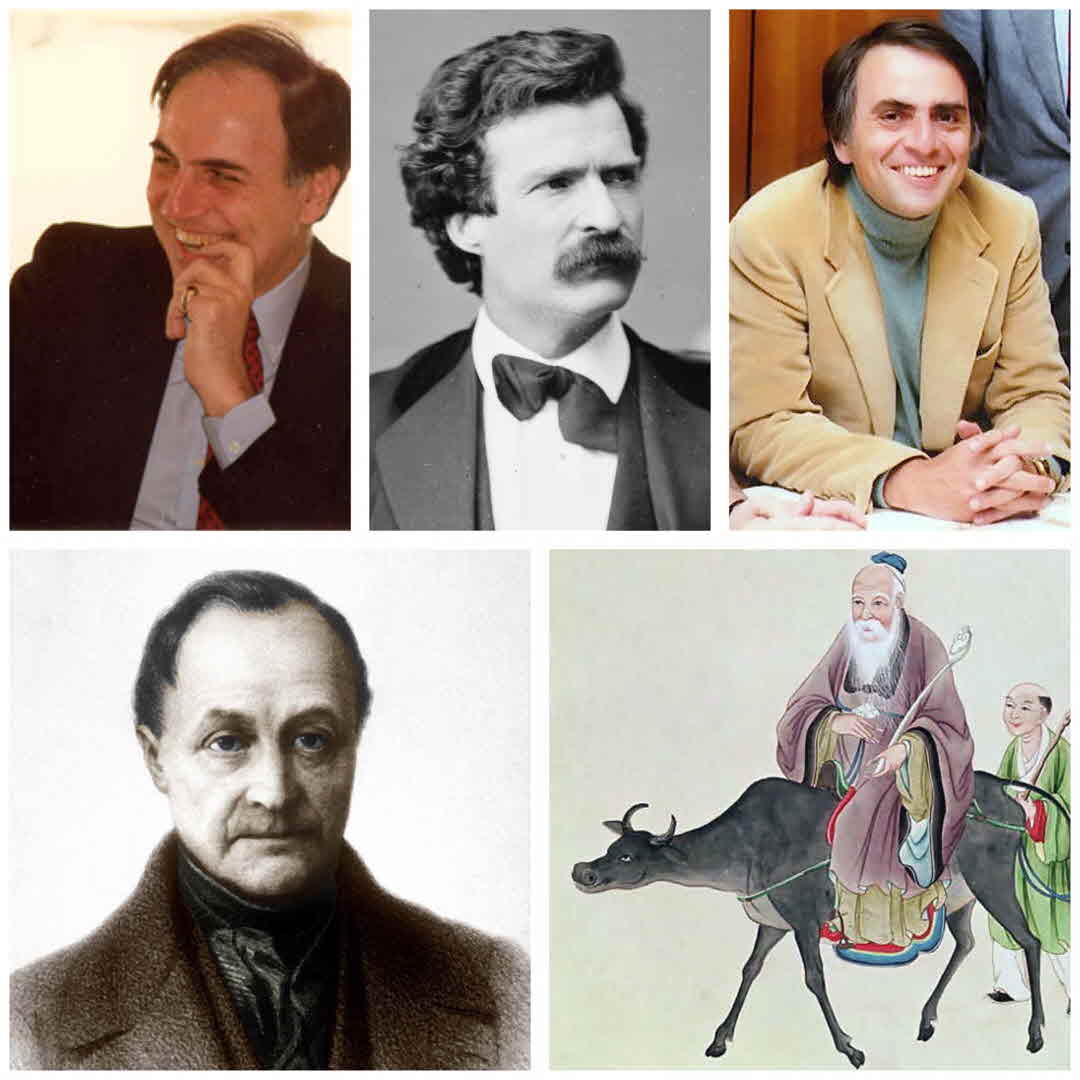
#phil5 - Who helped you build your worldview?
From top left, clockwise:
- Sherwin Wine
- Mark Twain
- Carl Sagan
- Laozi
- Auguste Comte
As always, tagging anyone who wants to play along.
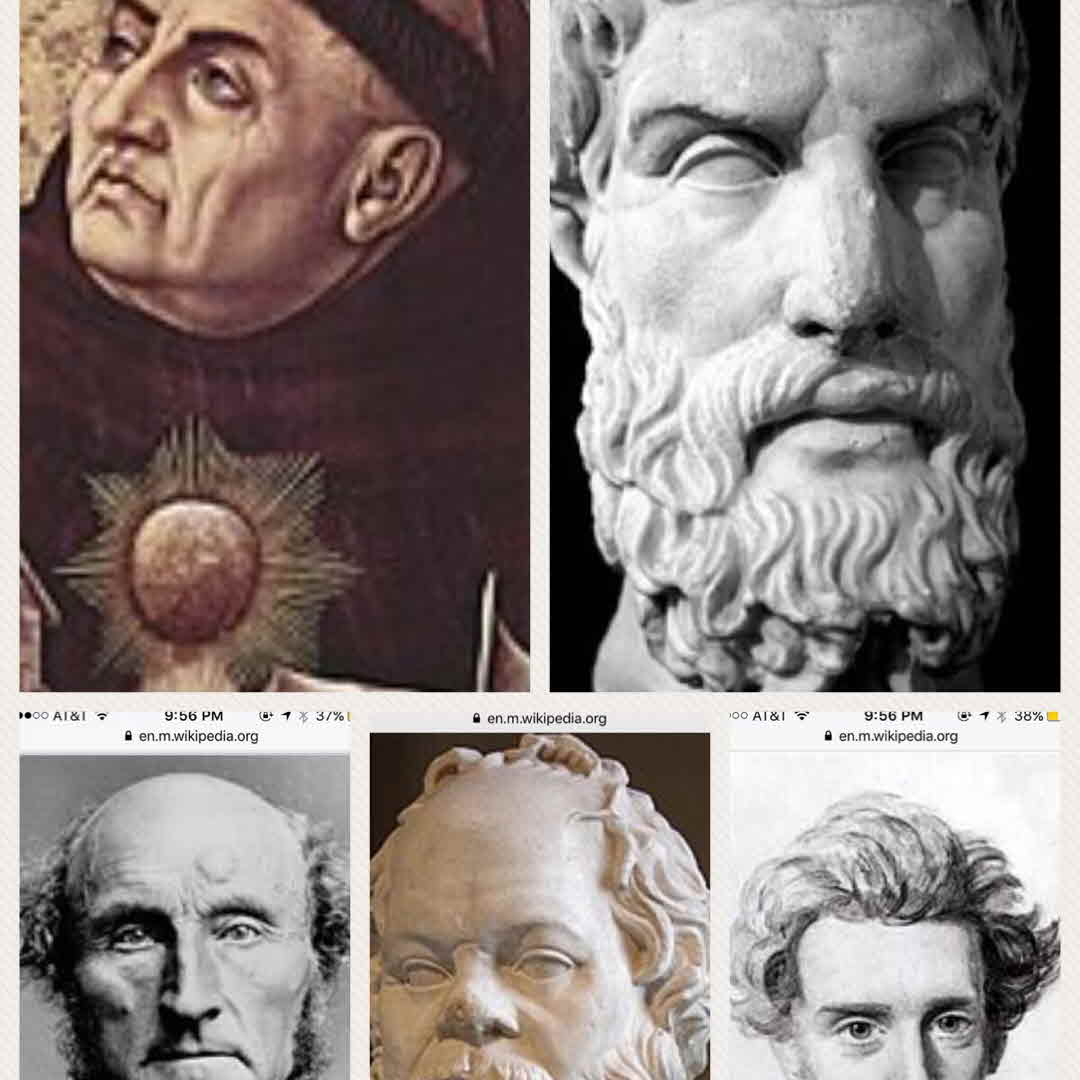
#phil5 who guides your philosophy of life?
1 Kierkegaard
2 Thomas Aquinas
3 Epicurus
4 John Stuart Mill
5 Confucius
@smrloomis
@batsy
@rubyslippersreads
@readingsusan
@jess7
@shemac77
@suet624
@imabisybee
@bekahb
@miralunasbooknook
@monkeygirlsmama
@mrozzz
Plato complains that whereas in simpler matters—like shoe-making—we think only a specially-trained person will serve our purpose, in politics we presume that every one who knows how to get votes knows how to administer a city or a state.
the strong do what they can, and the weak suffer what they must.
A disintegrating individualism had weakened the Athenian character, and left the city a prey at last to the sternly-nurtured Spartans.
Radicalism is a luxury of stability; we may dare to change things only when things lie steady under our hands.
Morality, said Jesus, is kindness to the weak; morality, said Nietzsche, is the bravery of the strong; morality, says Plato, is the effective harmony of the whole.
Men are not content with a simple life: they are acquisitive, ambitious, competitive, and jealous; they soon tire of what they have, and pine for what they have not; and they seldom desire anything unless it belongs to others.
The qualities of character can be arranged in triads, in each of which the first and last qualities will be extremes and vices, and the middle quality a virtue or an excellence. So between cowardice and rashness is courage; between stinginess and extravagance is liberality; between sloth and greed is ambition; between humility and pride is modesty; between secrecy and loquacity, honesty; between moroseness and buffoonery, good humor...
No doubt we have grown faster than nations usually have grown; and the disorder of our souls is due to the rapidity of our development.We are like youths disturbed and unbalanced, for a time, by the sudden growth and experiences of puberty. But soon our maturity will come; our minds will catch up with our bodies, our culture with our possessions.Perhaps there are greater souls than Shakespeare's, and greater minds than Plato's, waiting to be born.
In its youth a people produce mythology and poetry; in its decadence, philosophy and logic.
The constant steaming in of thoughts of others paralyzes the power of thought...The inclination of most scholars is a fuga vacui (ie vacuum suction) from the poverty of their own mind, which draws in the thoughts of others…It is dangerous to read about a subject before we have thought about it ourselves…When we read, another person thinks for us...if anybody spends almost the whole day in reading, he gradually loses the capacity for thinking.
Science tells us how to heal and how to kill; it reduces the death rate in retail and then kills us wholesale in war; but only wisdom—desire coordinated in the light of all experience—can tell us when to heal and when to kill.
Excellence is an art won by training and habituation: we do not act rightly because we have virtue or excellence, but we rather have these because we have acted rightly; these virtues are formed in man by his doing the actions; we are what we repeatedly do. Excellence, then, is not an act but a habit;
A great civilization is not conquered from without until it has destroyed itself within
In philosophy, as in politics, the longest distance between two points is a straight line.
And last are the few whose delight is in meditation and understanding; who yearn not for goods, nor for victory, but for knowledge; who leave both market and battlefield to lose themselves in the quiet clarity of secluded thought; whose will is a light rather than a fire, whose haven is not power but truth: these are the men of wisdom, who stand aside unused by the world.
How much more suffering is caused by the thought of death than by death itself.
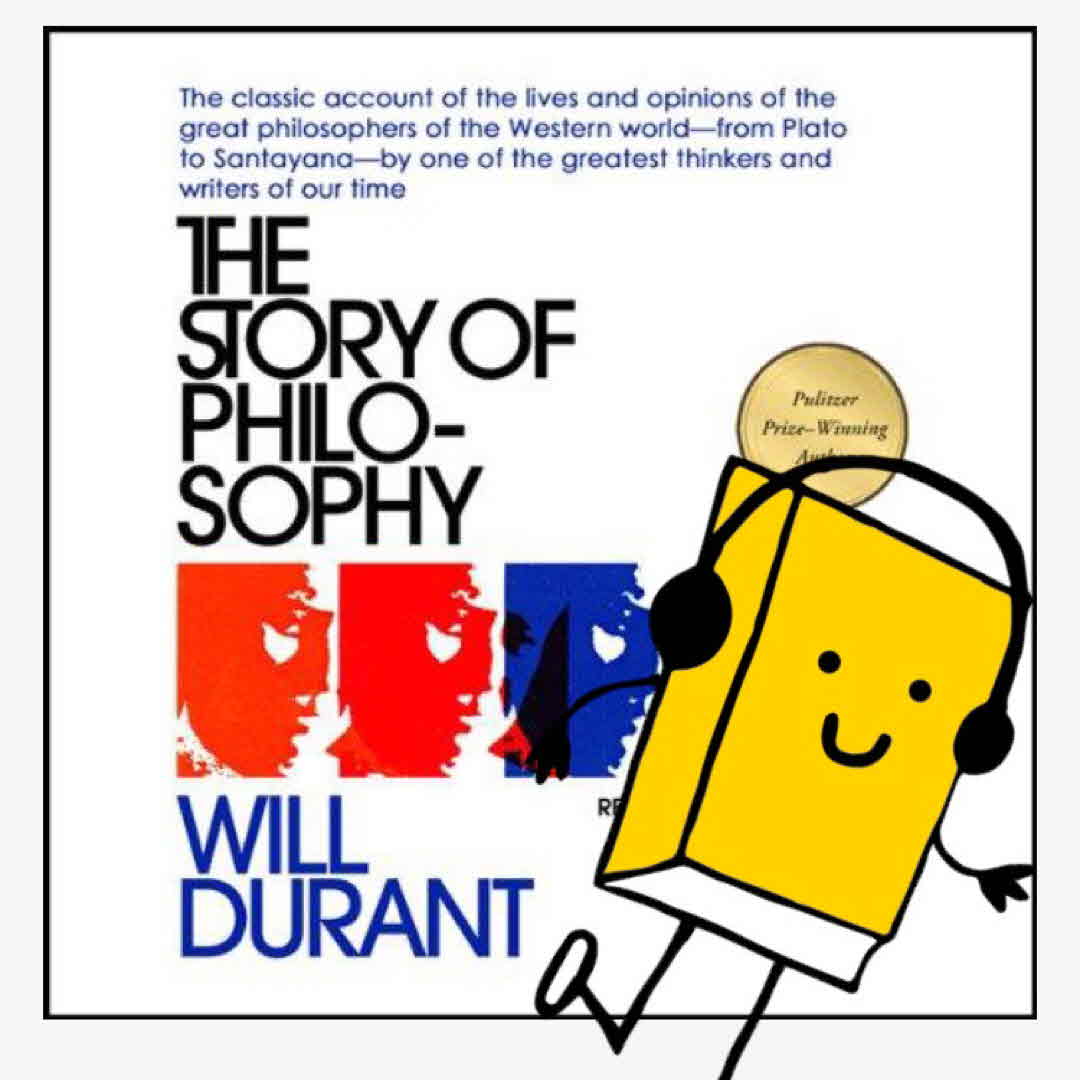
Making another attempt at a solid introduction to philosophy
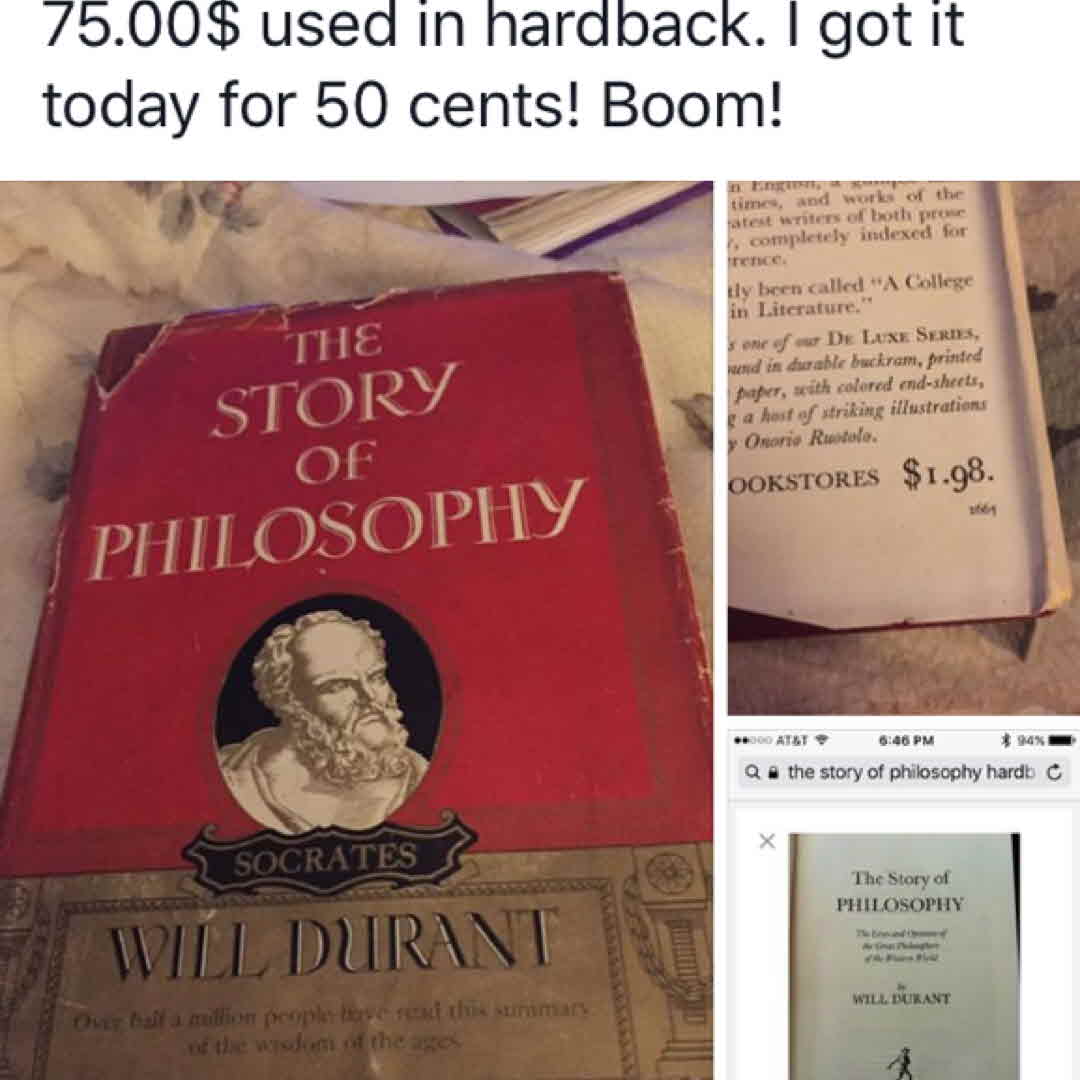
Score! 1.98$ when it was published in hardback. 75$ used. I got it for 50 cents! Thanks for all the great comments you guys share!!